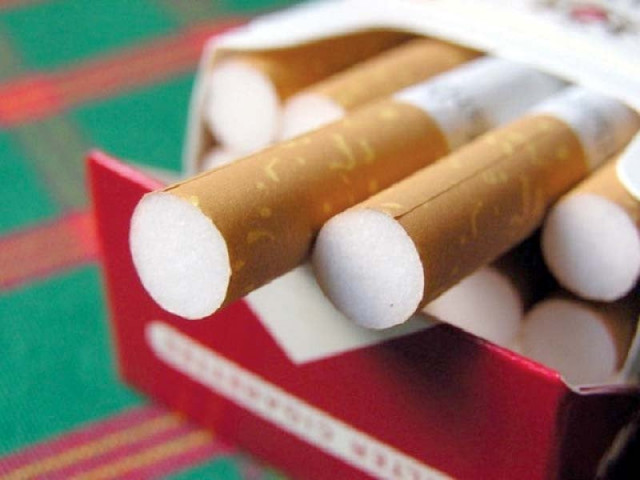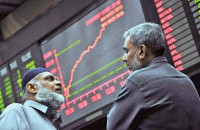Govt imposes new tax to curb illicit cigarette trade
Regulated manufacturers welcome FED on raw materials, demand strict enforcement of policies

Pakistan’s regulated cigarette manufacturers and marketers have welcomed the government’s move to impose a federal excise duty (FED) on the raw material—filter (acetate tow)—to bring tax evaders into the tax net.
At the same time, they demanded the government strictly enforce actions including the Track & Trace system, which is already in place but half-heartedly implemented nationwide. This has resulted in regulated sector sales being badly hit and provided an opportunity for illicit cigarette manufacturers and marketers to thrive.
While presenting the federal budget in the National Assembly on Wednesday, Finance Minister Muhammad Aurangzeb proposed imposing an FED of Rs44,000/kg on acetate tow, a basic raw material used in manufacturing cigarettes.
He admitted on the National Assembly floor that despite the introduction of the Track & Trace system in the cigarette industry in the recent past, smuggled, illicit, and non-tax-paid cigarettes remain freely available in local markets. He asked parliamentarians to approve a law giving harsh punishments to vendors found selling non-tax-stamped cigarettes, including sealing their shops.
Aurangzeb said the recommended tax (FED) would not impact the formal sector but would burden the informal sector in the country. He maintained that the availability of illicit, smuggled, and tax-evaded cigarettes is a grave concern for the government and especially for the health department.
To recall, there are only two cigarette manufacturers and marketers registered with the government in Pakistan, while around two dozen manufacturers and marketers remain out of the tax net. They are estimated to be evading taxes worth around Rs310 billion a year. The two regulated manufacturers pay 98% of the total tax collected from the cigarette industry, while the contribution of the unregulated ones remains meagre at 2%.
One official said the government could potentially collect $2 billion (roughly Rs550 billion) from cigarette manufacturers if it succeeds in bringing the out-of-tax-net makers into the tax net. “Due to the continuously increasing market share of illicit smoking sticks, the tax contribution by regulated manufacturers has reduced to around Rs700-750 billion a year (compared to higher amounts in previous years).”
The market share of illicit cigarettes has grown to 63% at present from around 40% a few years ago. Accordingly, the market share of documented cigarette makers and sellers has reduced to around 37% at present from 60% in the past.
Earlier, different governments imposed heavy taxes on cigarettes to discourage people from smoking. The strategy, however, diverted smokers from tax-paid cigarettes to non-tax-paid ones, as consumption has continued to grow at a notable rate every year instead of reducing.
An official of one of the two regulated cigarette makers told The Express Tribune, “Although encouraging enforcement actions have been put forward in the budget, what needs to be seen is the strategy and execution of the announced policies. Already implemented policies like Track & Trace system need to be implemented in full spirit across Pakistan and AJK (Azad Jammu and Kashmir – the hub of manufacturers selling cigarettes without tax nationwide),” he added.
A representative of another regulated cigarette maker in the country said the FED of Rs44,000/kg on acetate tow is being imposed at the import level, as the filters are not produced in the country. He said the duty would nominally increase production costs but would help the government estimate how big the illicit cigarette industry is operating in the country.
Many elected parliamentarians have remained involved in making and marketing undocumented cigarettes in different governments. Their significant influence in different governments has helped the illegal sector thrive, despite some cosmetic changes introduced from time to time to control them by various governments.



















COMMENTS
Comments are moderated and generally will be posted if they are on-topic and not abusive.
For more information, please see our Comments FAQ